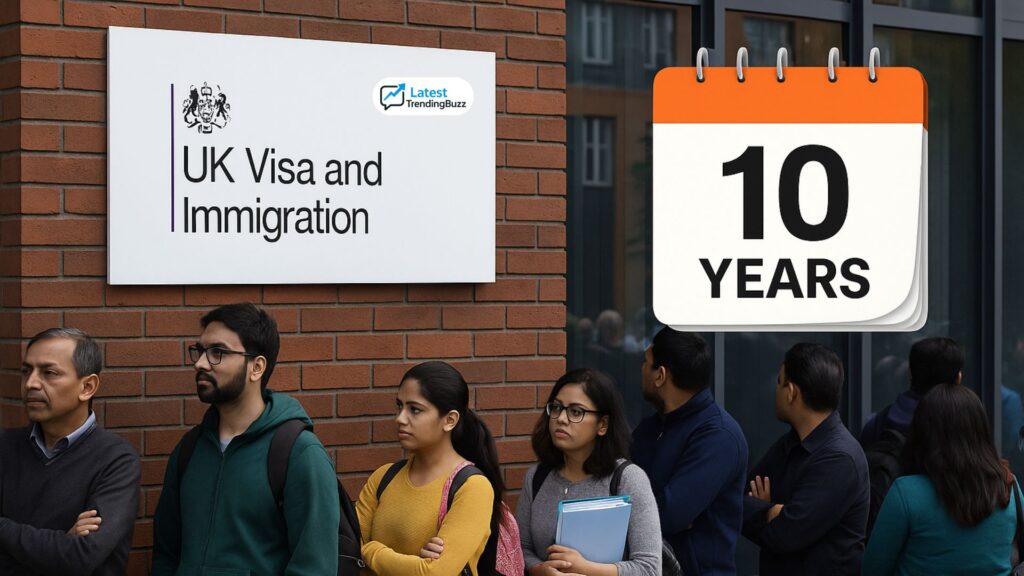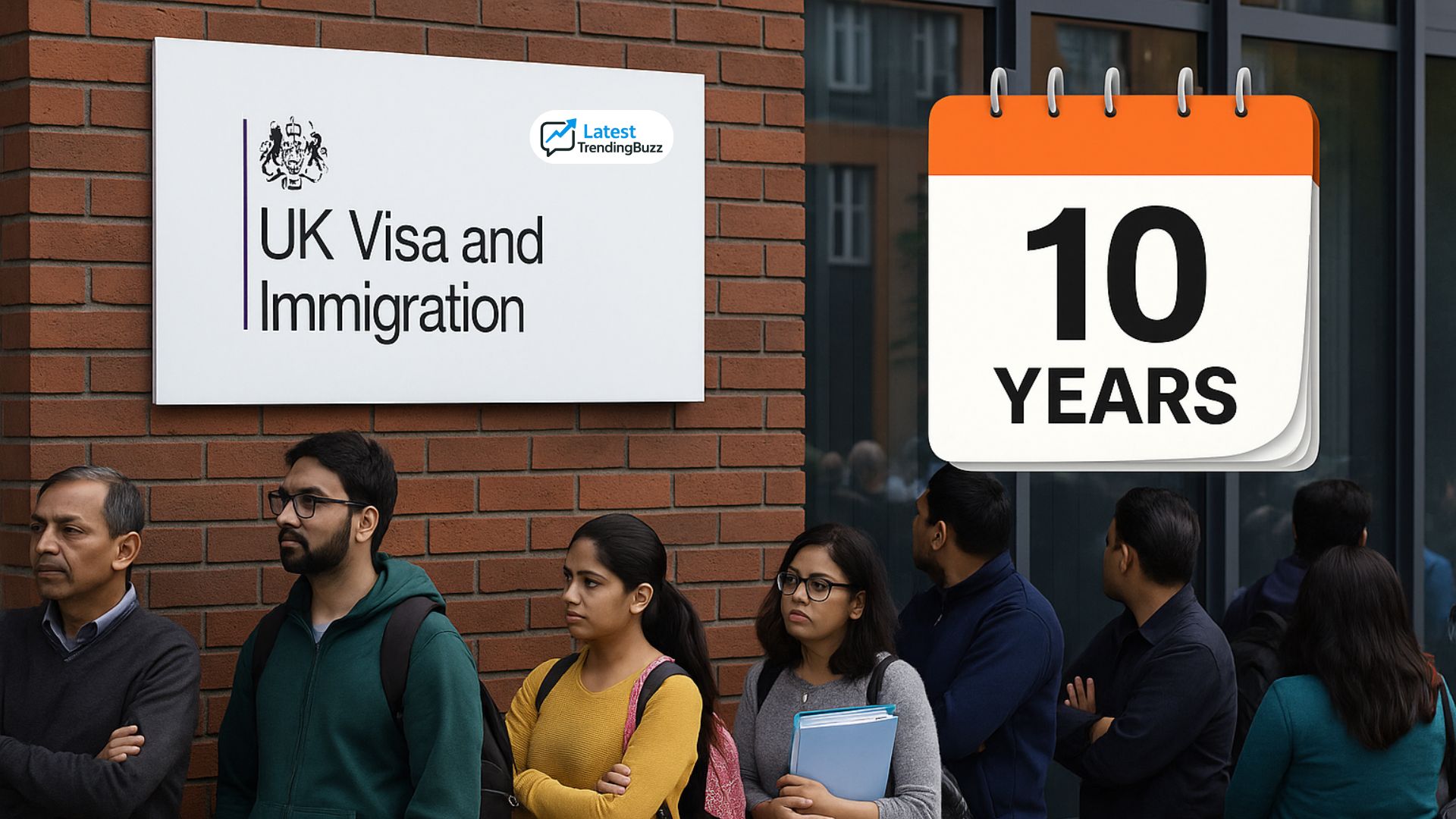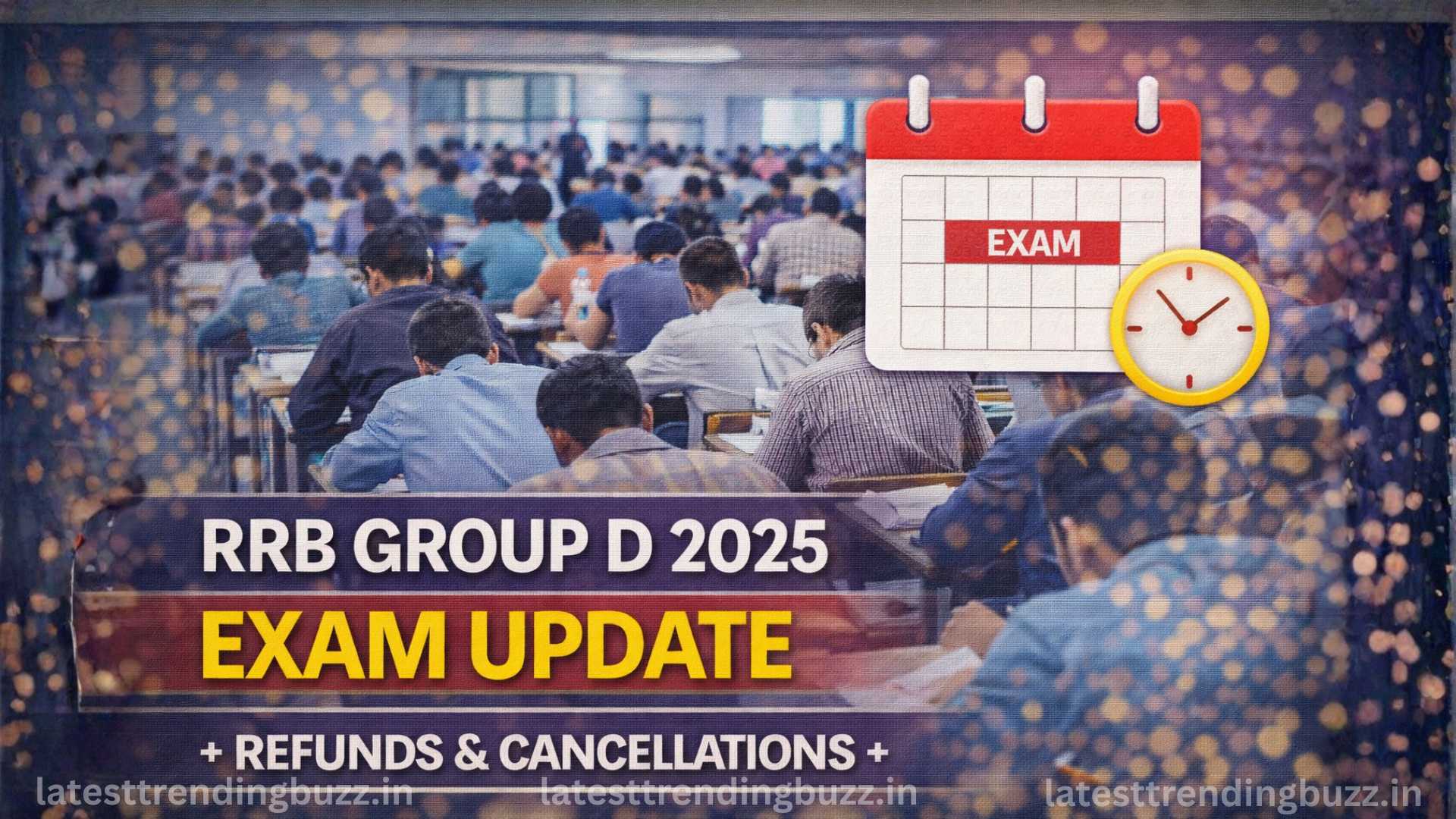If you’re planning to settle in Britain, there’s a major update you can’t ignore. The UK Permanent Residency Wait Time 2025 has been officially extended, doubling from the earlier five years to a full ten years for many visa holders. This change has left thousands of migrants stunned and worried about what their future in the UK now looks like.
In this article, we’ll break down what the new rules mean, why they were introduced, who’s impacted, and how you can prepare for this longer path to stability.
The Big Change: From 5 Years to 10 Years
Until now, skilled workers and other eligible migrants could apply for Indefinite Leave to Remain (ILR) after five years of continuous residence. With the UK Permanent Residency Wait Time 2025, that window has doubled to ten years for most categories under the Points-Based System.
The government argues that residency should be “earned” through long-term contributions, not just granted automatically after a short period. While some exceptions remain, the default path has become much tougher.
Why the Wait Time Was Increased
There are several reasons behind the new UK Permanent Residency Wait Time 2025 policy:
- Migration Control: Authorities want to ensure that only long-term, committed migrants gain settlement.
- Public Concerns: Rising immigration numbers triggered debates about housing, services, and jobs.
- Earned Settlement Model: Applicants will need to prove stronger ties, stability, and contribution before securing ILR.
- Political Pressure: With immigration at the center of political debate, stricter rules appeal to a section of voters.
Also Read: Govt Employees Diwali Bonus 2025: No Connection With Productivity!
Who Will Be Most Affected
Skilled Workers
Those entering the UK under the Points-Based System—engineers, healthcare staff, IT specialists—are directly impacted by the UK Permanent Residency Wait Time 2025. Their path now requires a decade of continuous residence.
Existing Migrants
Many families already planning for ILR after five years feel blindsided. Whether the new rules will apply retroactively or only to new applicants remains a key concern.
Family Routes
Partners of British citizens may still apply earlier, but uncertainty surrounds dependants of work visa holders under the UK Permanent Residency Wait Time 2025.
Students
Students on Tier 4 or Graduate visas may face longer and more expensive journeys toward eventual settlement.

The Costs of a Longer Journey
The UK Permanent Residency Wait Time 2025 doesn’t just mean more years—it also means more costs:
- Visa Renewal Fees: Migrants may need to renew visas multiple times within the 10-year period.
- Immigration Health Surcharge: Every renewal adds to the financial burden.
- Legal Support: With stricter requirements, more applicants may need professional advice.
For families, the cumulative cost over a decade could be staggering.
Also Read: PM Modi Releases Special Rs 100 Coin & Stamp to Mark RSS’s 100 Years
The Human Side of the Policy
When the government announced the UK Permanent Residency Wait Time 2025, reactions were immediate and emotional.
- “I’ve built my life here for four years. Just as I was nearing ILR, now I need to wait another six years? It feels unfair.” – A nurse from India.
- “This will hurt recruitment. Skilled workers might choose Canada or Australia instead, where PR is faster.” – A UK-based HR manager.
These voices highlight not just the bureaucratic shift, but also the real impact on families, careers, and long-term planning.
Exceptions to the Rule
Even under the UK Permanent Residency Wait Time 2025, some categories may still qualify earlier:
- Family members of British citizens.
- Victims of domestic abuse applying for independent status.
- Certain humanitarian or asylum routes.
- High earners or exceptional contributors under the “earned settlement” model.
How This Affects Employers
Businesses reliant on migrant talent also need to adjust to the UK Permanent Residency Wait Time 2025:
- Retention Issues: Workers may hesitate to commit long-term if settlement feels out of reach.
- Recruitment Challenges: Competing destinations like Canada and Australia will look more attractive.
- Administrative Burden: Companies may need to sponsor employees for longer periods.
Preparing for the Longer Wait
If you’re caught in the middle of the UK Permanent Residency Wait Time 2025, here are practical steps:
- Apply Early If Eligible: If you’re nearing the five-year threshold before the law takes effect, submit your ILR application quickly.
- Keep Records Clean: Maintain proof of employment, taxes, and residence without gaps.
- Boost Your Profile: Language proficiency, higher income, and stable employment can improve your case under earned settlement.
- Plan Financially: Budget for additional visa renewals and surcharges.
- Stay Updated: Follow official announcements closely for clarifications on retroactivity.
FAQs
Q1: What is the new wait time for ILR?
The UK Permanent Residency Wait Time 2025 is 10 years for most work and points-based visa holders.
Q2: Does it apply to everyone?
Not all. Family routes and humanitarian categories may still qualify earlier, but the UK Permanent Residency Wait Time 2025 applies broadly to skilled workers.
Q3: Will the rule apply to migrants already in the UK?
It’s unclear. Some expect grandfathering for current visa holders, but the UK Permanent Residency Wait Time 2025 could apply to new applicants only.
Q4: Why did the government make this change?
The UK Permanent Residency Wait Time 2025 reflects the government’s aim to make settlement more conditional and selective.
Q5: How does this compare internationally?
Canada and Australia often grant PR in 3–5 years, making the UK Permanent Residency Wait Time 2025 one of the longest among major destinations
Conclusion
The UK Permanent Residency Wait Time 2025 is a game-changer for migrants, businesses, and families dreaming of settling in Britain. For many, it means an extra five years of uncertainty, expense, and planning. For the government, it’s about control, accountability, and ensuring that settlement is truly earned.
Disclaimer:
This article is for informational purposes only. Immigration policies change frequently, and details may vary. Readers should check official UK government sources or consult legal experts before making residency plan














